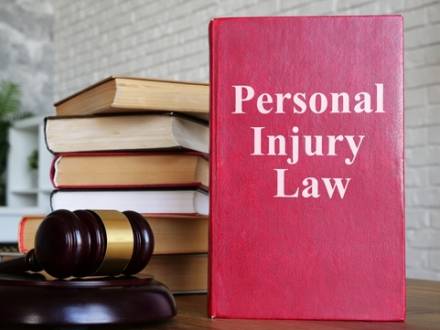What Is Negligence by Omission in Personal Injury Cases?
 Personal injury claims allow eligible victims to obtain compensation from the party responsible for their injuries. Not every accident or injury qualifies and each case has to meet specific requirements. You have to prove that someone else is liable before you can get a settlement. Even when you have proof, reasonable settlement amounts are hard to obtain without the assistance of a skilled attorney from Law Office of John J. Garvey, III.
Personal injury claims allow eligible victims to obtain compensation from the party responsible for their injuries. Not every accident or injury qualifies and each case has to meet specific requirements. You have to prove that someone else is liable before you can get a settlement. Even when you have proof, reasonable settlement amounts are hard to obtain without the assistance of a skilled attorney from Law Office of John J. Garvey, III.
What Is Negligence in Personal Injury Cases?
Negligence is the foundation for most personal injury cases. The term’s definition in legal matters is a failure to behave in the way a reasonable person would in the same situation. To establish negligence, the party in question must have owed you a duty of care. This duty is a legal obligation to use reasonable care to avoid harming others, and it can differ depending on the situation. When someone fails to provide the required duty of care, and that failure causes your injuries and related damages, you likely have grounds to file a personal injury claim.
Negligent Actions
Negligence can take many forms. These include:
-
Speeding
-
Aggressive or reckless driving
-
Requiring employees to use unsafe equipment or vehicles
-
Distracted driving
-
Providing unsafe equipment for workers
-
Allowing unrestricted access to hazardous areas
-
Permitting dangerous dogs to roam free
-
Operating a boat without enough life preservers for your passengers
A reasonable person would expect that these actions are hazardous and could lead to car crashes, truck accidents, workplace incidents, and other situations that might injure others. Unfortunately, some of these situations can lead to fatalities, and eligible survivors may be able to collect compensation through a wrongful death action.
Negligence by Omission
Sometimes, failure to act results in accidents or injuries. The following situations demonstrate examples of negligence by omission:
-
Failing to check blind spots before lane shifts
-
Failing to yield the right of way
-
Failing to train employees adequately
-
Failing to report an injury accident
-
Failing to facilitate proper medical care
These and other omissions or failures can directly harm others. A reasonable person understands that and would make other choices in these instances.
What If Your Own Negligence Contributed to Your Accident?
Many factors often combine to cause accidents and injuries. For example, an intoxicated driver may hit your car. If you had not been texting while driving, you may have been able to avoid the collision. In cases where more than one party shares fault in CA accidents, the state’s pure comparative negligence laws apply.
You may be able to collect damages from other parties sharing the blame, but your percentage of assigned fault determines how much your settlement may be. For instance, if you are 20 percent at-fault for causing your accident, the most compensation you can get is 80 percent of your total damages. Liable insurance companies may blame you for an unfair degree of fault to avoid paying your claim. When you work with Law Office of John J. Garvey, III, we will not let them take advantage of you.
Contact Us Now To Speak With One of Our Skilled San Jose, CA Personal Injury Lawyers
You need evidence of another party’s negligent actions or omissions to collect damages. Law Office of John J. Garvey, III can investigate your incident, gather appropriate evidence, and fight to see you get the highest possible amount of compensation. Call us today at 408-293-7777 for your free consultation with our knowledgeable Santa Clara County, CA personal injury attorneys.









